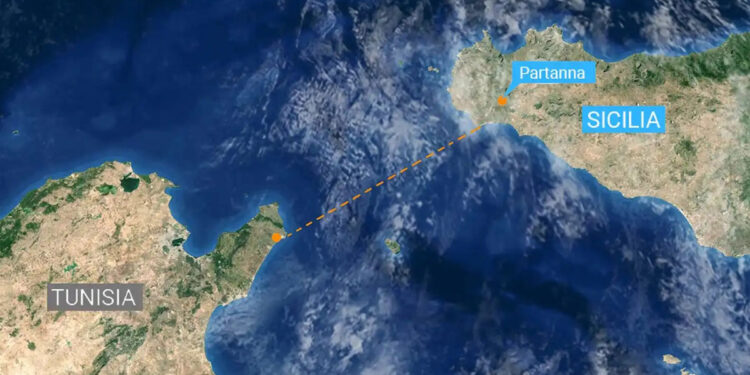The Elmed project, connecting Tunisia to the south of Italy, positions Tunisia as a key player in Euro-African energy integration. This submarine cable opens the way to reinforced energy cooperation between Algeria, Tunisia and Europe.
The Elmed project, in the finalization phase, could well make Tunisia a central player in the new energy card in the Mediterranean basin. This underwater electric cable, which will connect the Tunisian network in the south of Italy, will not only strengthen the interconnection between North Africa and Europe, but also to position Tunisia as a regional energy transit hub.
According to the statements of Fayçal Trifa, director general of the Tunisian Electricity and Gas Company (STEG), taken over by the Italian agency Nova, Elmed aims to integrate Algerian and Tunisian networks to facilitate the export of electricity to Europe and support the creation of a future Euro-African energy market.
This major project, with a capacity of 600 MW and a total cost of 850 million euros, benefits from substantial funding: 300 million euros from the European Commission and $ 260 million from the World Bank, with the involvement of the European Investment Bank (BEI), the German KFW and the European Bank for Reconstruction and Development (BERD).
For Tunisia, the benefits are multiple. From a strategic point of view, this project would strengthen the country’s energy security, while fully integrating it into the major energy transition dynamics in the Mediterranean. It also opens up commercial prospects, since Tunisia could benefit from transit rights or, in the long term, exports electricity itself, in particular from renewable energies.
In parallel, Algeria puts on this Tunisian-Italian corridor to strengthen its electrical exports, in particular after the abandonment of the project of direct interconnection with Libya deemed technically infection. For this purpose, it modernizes its high voltage lines towards Tunisia, while developing an ambitious electricity production program, with objectives exceeding 50,000 MW within ten years, partly thanks to solar and wind energies.
Tunisia, positioning itself as a line of energy union between Africa and Europe, thus sees new perspectives in terms of energy diplomacy, investment and regional integration.








